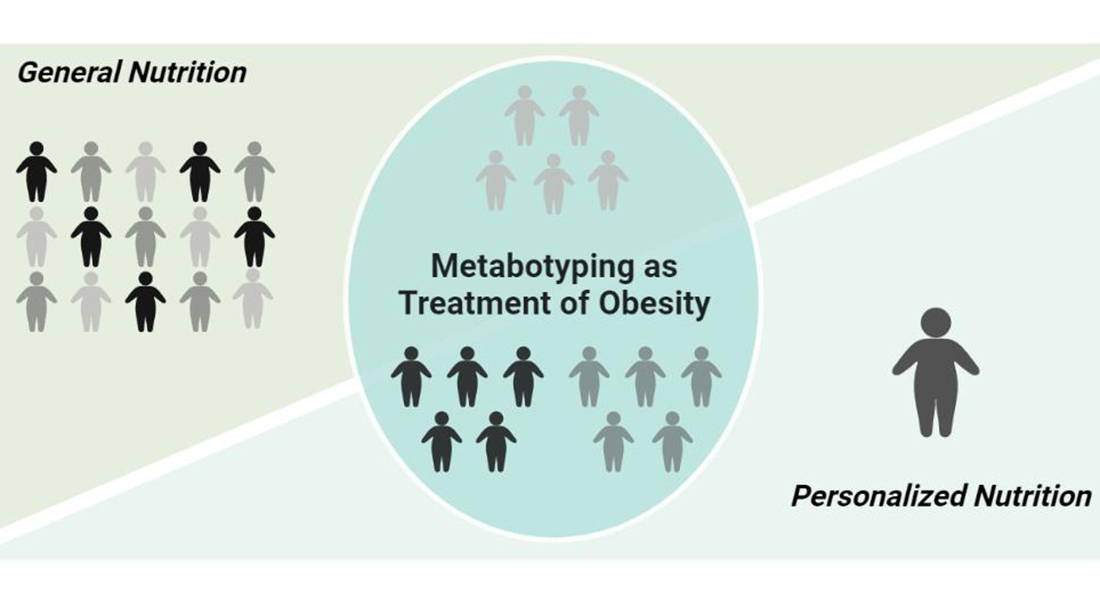PhD defence: Metabotyping in Precision Nutrition and Weight Management

Kristina Pigsborg
PhD thesis
To combat the increasing prevalence of obesity, the best diet for optimal weight loss has long been investigated. However, studies consistently show large interindividual variation in response to the same dietary treatment, hence a more personalized diet might minimize this variation. The new concept metabotyping, which involves categorizing individuals into smaller, more similar subgroups based on their metabolic phenotype, holds promise for precision nutrition. Accordingly, the objective of this thesis was to explore the potential of metabotyping for optimizing weight loss success in response to diet treatment among individuals with obesity.
Firstly, a randomized controlled trial was designed and conducted to test the efficacy of individualized diet treatments driven by literature-defined metabotypes, compared to generic dietary recommendations, during a 10-week nutrition intervention. The study demonstrated no additional benefit of personalizing dietary plans over a generic approach on the change in fat mass and body weight in individuals with overweight or obesity and elevated waist circumference.
Secondly, a prediction model was developed to predict weight loss success for subjects with following a New Nordic Diet by utilizing baseline metabolomics data. A model with urinary levels of adipic acid and argininic acid was identified to provide a predictive signature for distinguishing weight loss responders and non-responders at baseline. These metabolites could potentially be a point of direction for new metabotypes that respond differently on a fiber-rich diet.
Lastly, other factors than biological or metabolic variables, such as behavioral and psychological factors, which potentially could influence the outcome of a weight loss intervention were reviewed. Here, it became evident that the variation in weight loss responses may partly be explained by differences between individuals in a variety of behavioral and psychological factors, which emerged as important parameters for successful weight loss.
Collectively, this work suggests that there is still much work to be done for optimizing personalized approaches to dietary recommendations for successful weight loss. Future studies should be designed with much more careful consideration of the definition of the metabotypes, and target dietary recommendations on the diet level rather than at the level of specific foods. Last but not least, future studies should also track a variety of behavioral and psychological factors that could affect weight loss outcomes.
Download Publications; Summary; Dansk sammendrag; Table of contents.
Time
29 September 2023, 13:30
Place
Auditorium A2-70.04, Thorvaldsensvej 40, 1871 Frederikbserg C.
Opponents
Associate Professor Henrik Munch Roager (chair), Department of Nutrition, Exercise and Sports, University of Copenhagen, Denmark.
Professor Ellen Blaak, Department of Human Biology, Faculty of Health, Medicine and Life Sciences, Maastricht University, Netherlands.
Madeleine Ernst, Head of the Metabolomics Research Group, Section for Clinical Mass Spectrometry, Danish Center for Neonatal Screening, Statens Serum Institut, Denmark.
Main supervisor
Professor Faidon Magkos, Department of Nutrition, Exercise, and Sports, Faculty of Science, University of Copenhagen, Denmark.
Co-supervisors
Professor Lars Ove Dragsted, Department of Nutrition, Exercise and Sports, University of Copenhagen, Denmark.
Senior Scientific Manager Mads Fiil Hjorth, Obesity and Nutritional Sciences, Novo Nordisk Foundation, Denmark.
The thesis is available for inspection at the library, Nørre Allé 51, DK-2200 Copenhagen N.
